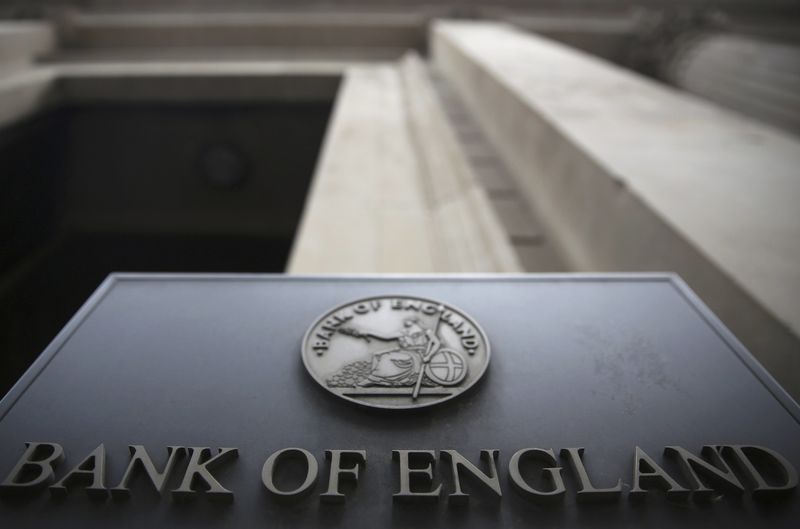(Bloomberg) -- The Bank of England is widely expected to boost its support for the U.K. economy again on Thursday amid signs that recovering from the pandemic-induced recession will be harder than hoped.
Economists predict the central bank will expand its bond-buying program by 100 billion pounds ($125 billion), taking it to 745 billion pounds, and investors are watching keenly for any hint of radical policies such as negative interest rates and yield curve control. The decision will be announced at noon in London.
The BOE has been forced into unprecedented measures to fight what may be Britain’s deepest economic slump in three centuries, linking up with the government to keep companies afloat and wages flowing.
Even as the country relaxes its lockdown controls -- non-essential stores were allowed to open their doors this week for the first time since March -- the prospect of a no-deal Brexit is putting companies on edge.
After data last week showed GDP shrank more than 20% in April, BOE Governor Andrew Bailey said officials stand ready to take more action.
Most analysts see the risks to the economy as clearly to the downside. The U.K. Treasury’s poll of private-sector economists, published on the eve of the BOE meeting, suggested the economy will recover more slowly than official forecasts imply.
Policy makers are extremely wary of scarring from the collapse in activity, as job losses and bankruptcies dampen future growth. Claims for unemployment benefits more than doubled during the first full two months of lockdown. Inflation has slowed to just a quarter of the BOE’s 2% target.
Against that backdrop, the BOE has cut its benchmark interest rate to a record-low 0.1%. It also restarted bond buying, helping the government afford its massive debt burden, and revived a program that directs cheap loans to companies that need them.
What Our Economists Say
“The central bank is likely to increase its asset purchase target by 100 billion pounds. The move would allow it to continue buying 13.5 billion pounds of gilts a week until its August meeting. We see a further extension of 100 billion pounds as likely in the summer.”
--Dan Hanson. For more, click here
Yet Bailey and his colleagues have also repeatedly said no tools are ruled out, stoking speculation that options such as negative rates -- which are currently being reviewed -- might be next.
That tool has proved controversial in the rest of Europe though. Just one of the 43 economists surveyed by Bloomberg sees the BOE cutting below zero by year-end, and investors have pared bets on it happening, reckoning that other measures will be preferred first.
One possibility is that the BOE could lower the rate on its Term Funding Scheme, which helps banks provide much-needed credit to companies. That would echo the current strategy of the European Central Bank, which has cut the cost of long-term loans while keeping its official interest rates unchanged.
Other options include adding riskier securities to the asset-purchase program, helping to push down funding costs in financial markets, or deliberately targeting specific yields on bonds -- a policy the Bank of Japan already deploys.
“We are onside with consensus in expecting a significant increase in the BOE’s quantitative easing to mitigate the negative effects of the pandemic and Brexit uncertainty,” said Christopher Dembik, head of macro analysis at Saxo Bank. “The overarching message should remain ultra-accommodative, with potential reference to negative rates if conditions require further support.”
©2020 Bloomberg L.P.
